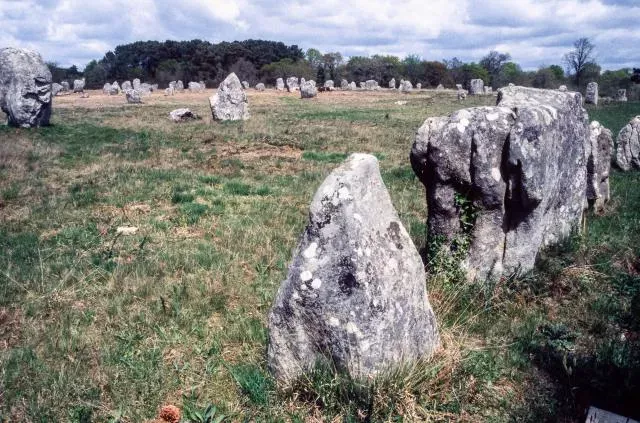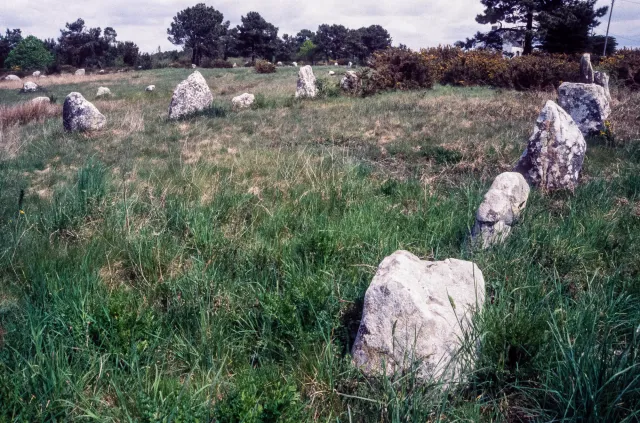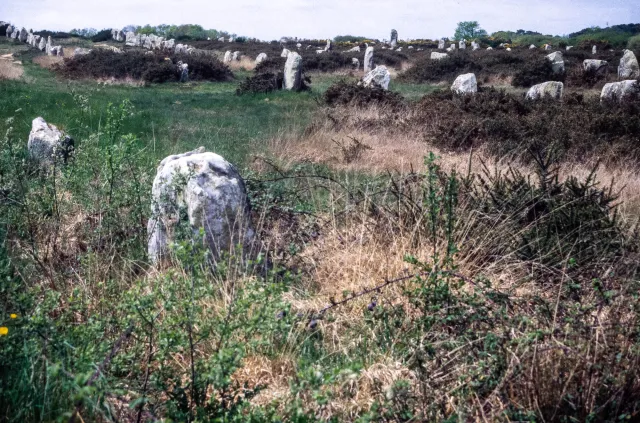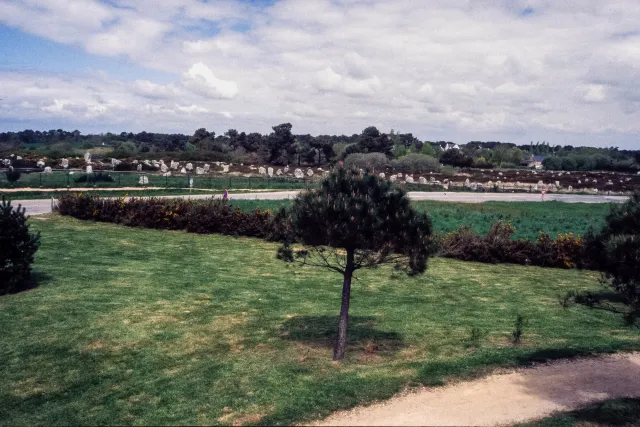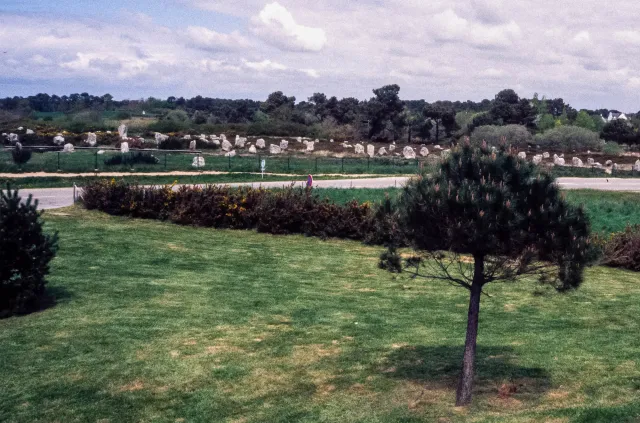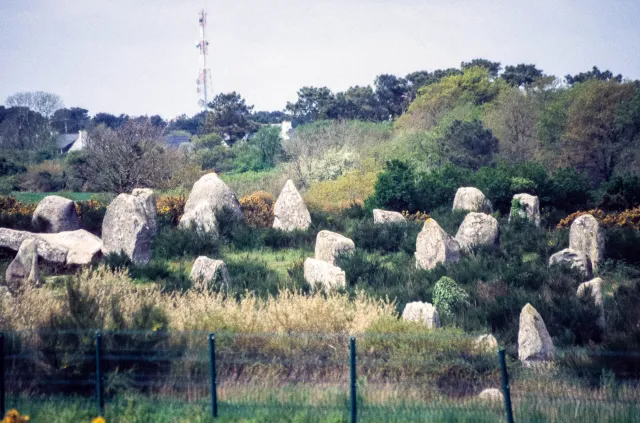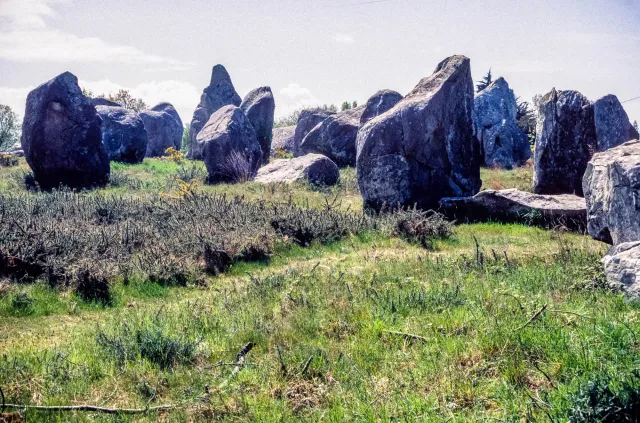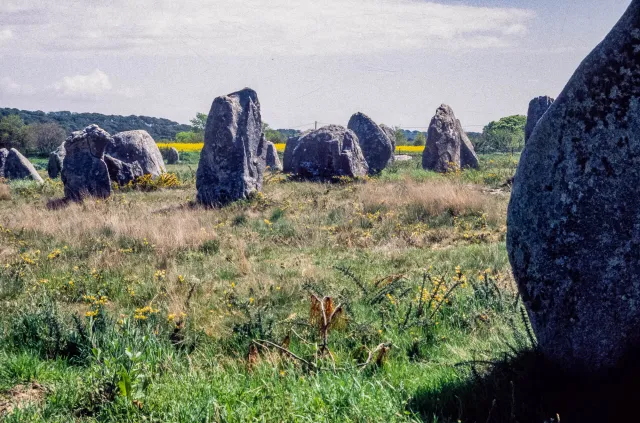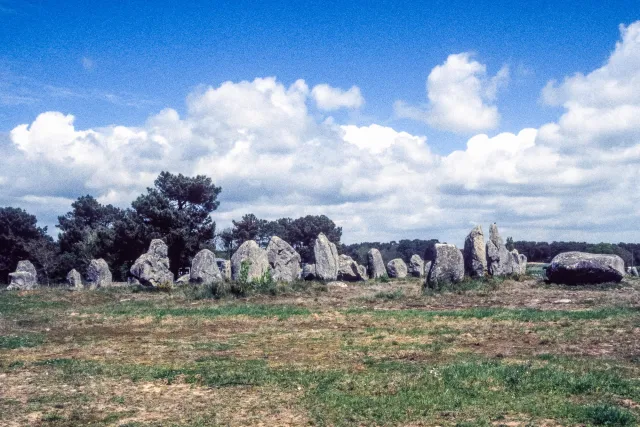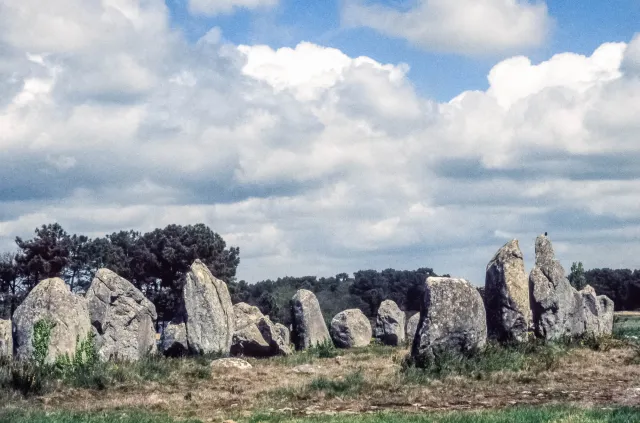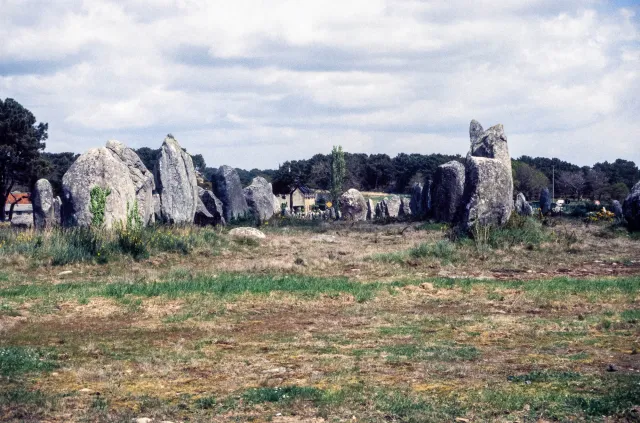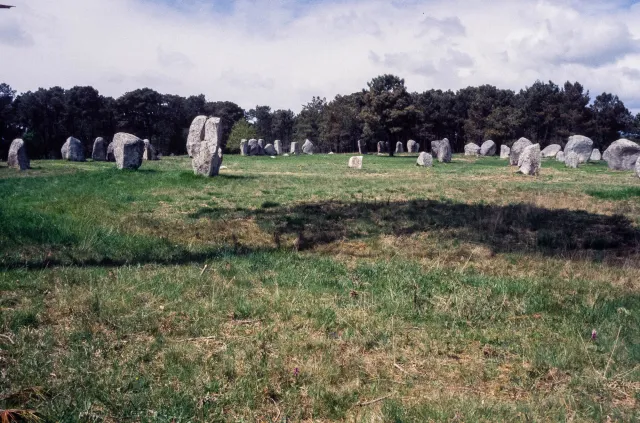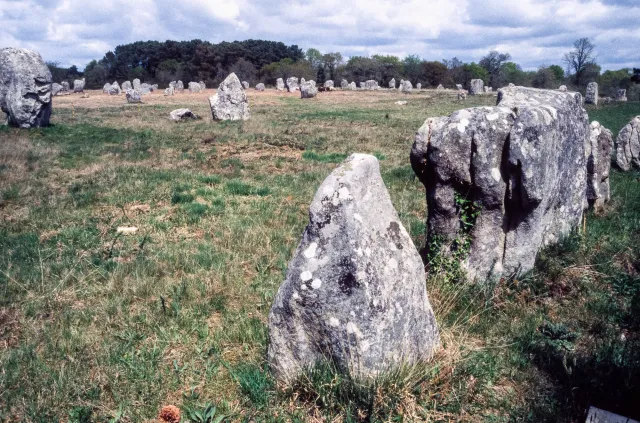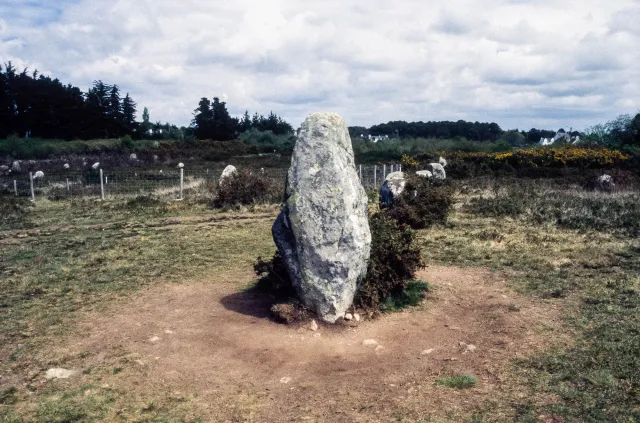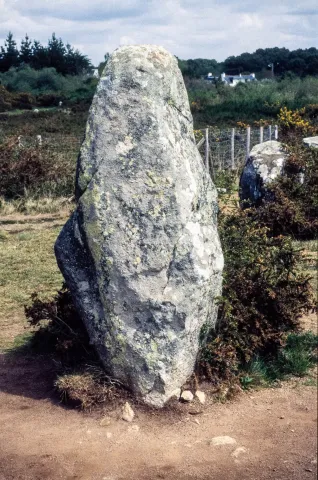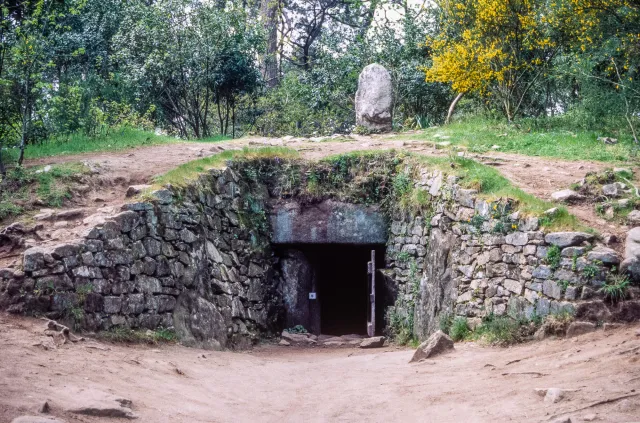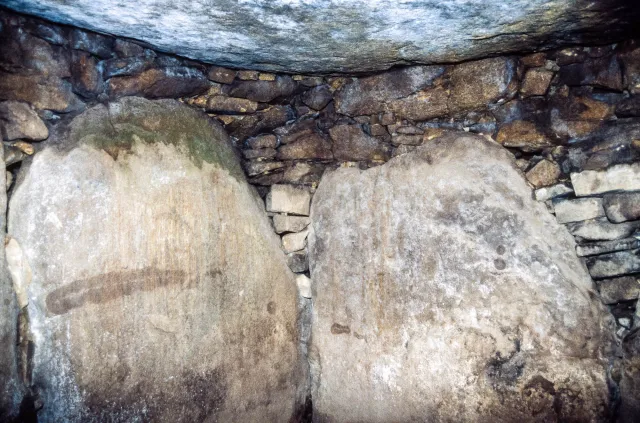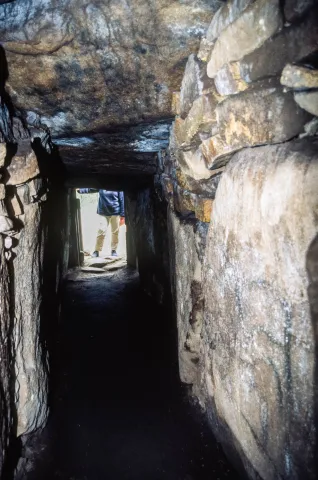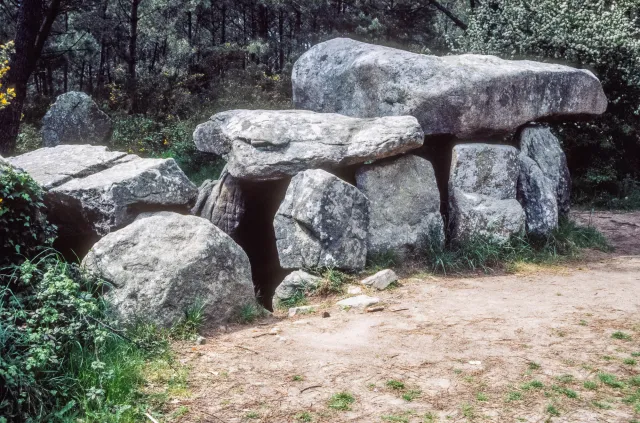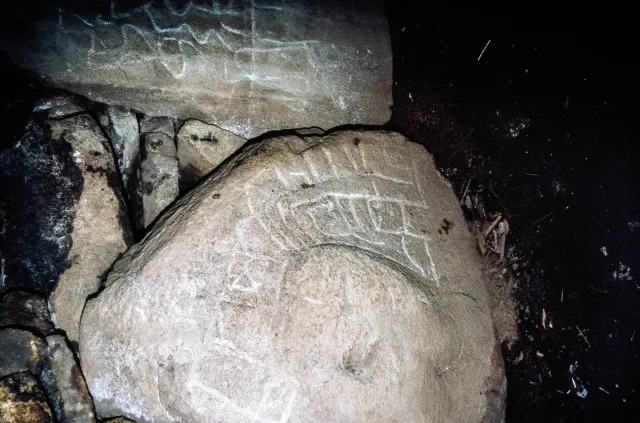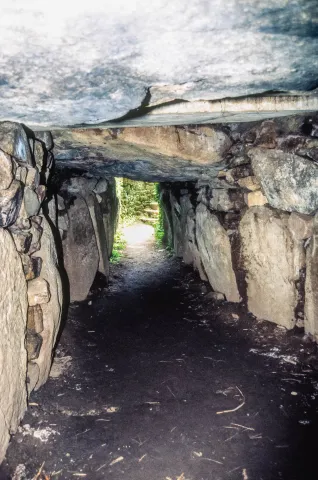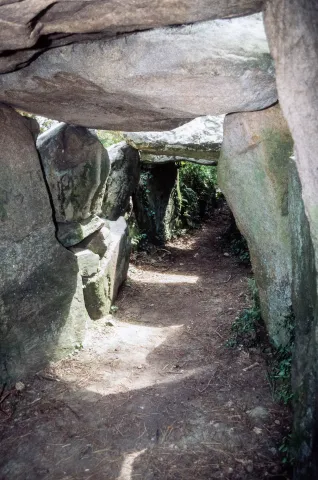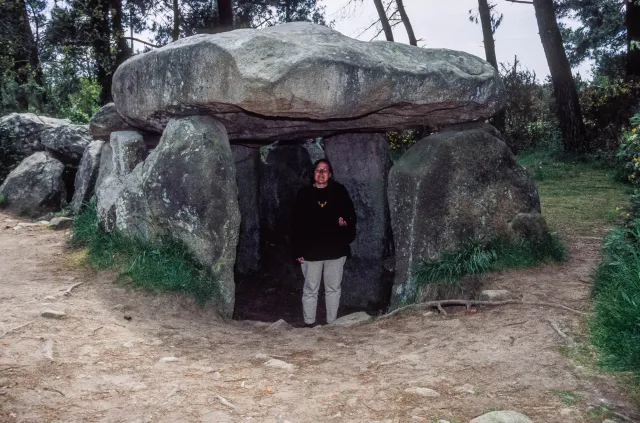In Carnac there are rows of stones (French/Alignments) of menhirs (Celtic/large stone), which consist mainly of granite rock from the Breton coast and numbered around 3000 in the years of construction. The largest menhirs are about 4 meters high and are always at the western end of the corresponding row. To the east, the menhirs become smaller and smaller in their approximately 3 km long rows until they are only half a meter high. Originally, the rows were probably even 8 kilometers long.
Stone circles can also be seen at some ends of the rows. In the case of the stone rows of Menec, for example, there are stone circles with a diameter of around 100 meters both at the western and at the eastern end.
The mighty stone rows, stone circles, large stone tombs (dolmen) and individual menhirs show the great importance of this complex in the megalithic culture. The buildings were built in the Early Stone Age around 4500 BC. erected and used until the Bronze Age (about 2300 BC).
As with all megalithic structures, the meaning and use of the rows of stones has only been partially clarified and it may seem unlikely that this massive construction in Carnac should have had only astronomical importance for determining the seasons and, among other things, for the timely sowing of grain and other useful plants.
We visited and photographed the facility in 1996. Today the rows of stones are no longer easily accessible.
